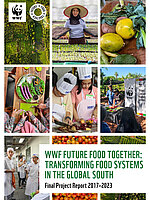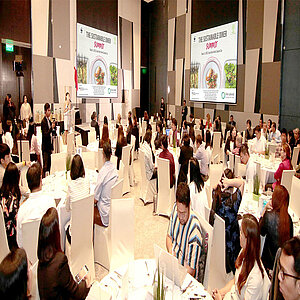Promotion of sustainable production practices in Northern Thailand

As part of the project's key activities towards the localization of sustainable consumption and production (SCP), the SCP project, under a collaborative partnership between WWF, Nan Organic Agricultural Network (NON), Central Group (and Tops Supermarket), and the local communities of Nan, aims to promote sustainable production practices, as well as the establishment of sustainable food value chain through the province's local food biodiversity.
Through the development and implementation of SCP solution model, the project looks towards the restoration of degraded agricultural and forest landscapes, as well as an improved community livelihood. This documentary highlights on the many collaborative action plans and sustainable practice models that are currently being adopted by WWF-Thailand and smallholder farmers of Northern Thailand towards achieving sustainable production, which includes 1) the use of the Participatory Guaranteed System (PGS), 2) development of a traceability monitoring platform, 3) an in-depth study into the communities' current agriculture mechanization gaps.
The WWF-Sustainable Consumption and Production (SCP) project is part of the International Climate Initiative (IKI). The Federal Ministry for the Environment, Nature Conservation and Nuclear Safety (BMU) supports this initiative on the basis of a decision adopted by the German Bundestag.
The link has been copied to the clipboard
Information
Length
08:57 Minutes
Date of publication
2019
Project
Establish Sustainable Consumption and Production - a South-South Transfer (“SCP South-South”)
Related Publications
Further publications related to the International Climate Initiative and its projects can be found in the publications section of our website.











![[Translate to English:]](/legacy/_processed_/f/5/csm_20200911_organic_agriculture_in_Nan_province_e0f204d31c.jpg)


